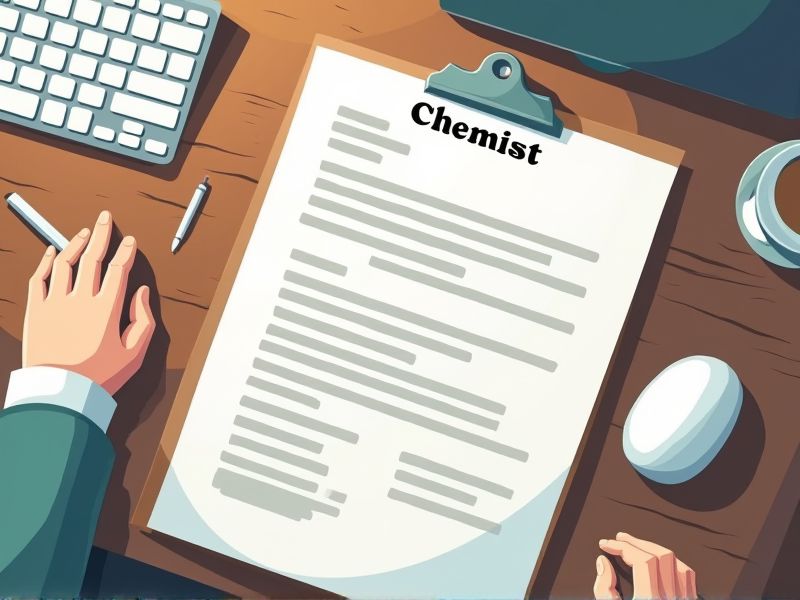
Demand for forensic chemists is rising due to the increasing complexity of crime investigations, necessitating a deeper understanding of chemical analysis. Obtaining certifications ensures professionals possess the necessary expertise to handle sophisticated forensic equipment and methodologies. Certifications validate a chemist's knowledge and skills, boosting credibility and trust within legal and scientific communities. Some vital certifications for forensic chemists might include:
American Board of Criminalistics (ABC) Certification
Earning ABC Certification equips forensic chemists with standardized proficiency, signaling their expertise and competence in the field. This certification fosters a level of trust among legal professionals, as it assures adherence to rigorous quality and ethical standards. The certification process often involves staying updated with the latest advancements, ensuring that forensic chemists maintain relevant and cutting-edge knowledge. Forensic chemists with ABC Certification can enhance their career prospects, with many organizations preferring or requiring certified experts.
Certified Forensic Scientist (CFS)
A Certified Forensic Scientist ensures adherence to rigorous industry standards, enhancing the credibility of evidence analysis in legal proceedings. Certification indicates specialized training, providing a forensic chemist with up-to-date methodologies vital for accurate results. Errors in forensic chemistry can jeopardize judicial outcomes, so employing a CFS minimizes such risks. The growing complexity of criminal cases necessitates expertise, making certified professionals crucial for reliable forensic investigations.
American Board of Forensic Toxicology (ABFT) Certification
The American Board of Forensic Toxicology (ABFT) Certification is crucial for forensic chemists because it establishes a recognized standard of expertise, ensuring that professionals possess the necessary skills and knowledge. Rigorous certification exams test individuals on comprehensive aspects of forensic toxicology, validating their competence in the field. This certification enhances accuracy in forensic analysis and interpretation, which directly impacts the credibility of legal outcomes. Many employers require ABFT Certification as a benchmark for hiring, confirming the chemist's commitment to professional development and ethical standards.
Certified Forensic Toxicologist (CFT)
A Certified Forensic Toxicologist is needed for a Forensic Chemist to ensure the accurate interpretation of chemical evidence, which is critical in legal scenarios. The certification provides specialized knowledge in drug metabolism and pharmacokinetics, improving the chemist's ability to analyze complex substances. With a CFT, the chemist can offer expert testimony in court, enhancing the reliability of their findings. The certification also signifies a standard of expertise, building trust with legal professionals and reinforcing the validity of forensic analysis.
Certified Laboratory Analyst (CLA)
Certified Laboratory Analysts (CLAs) enhance the credibility of forensic chemists by ensuring adherence to rigorous analytical standards. Their certification often indicates proficiency in handling complex instrumentation and methodologies crucial for accurate forensic investigations. By maintaining consistency in testing procedures, CLAs help reduce errors, thereby improving the reliability of forensic results. This reliability is essential in legal contexts where forensic evidence can significantly impact judicial outcomes.
ISO/IEC 17025 Laboratory Accreditation Training Certification
Forensic chemists require ISO/IEC 17025 Laboratory Accreditation Training Certification to ensure reliable and valid test results, enhancing trust in the justice system. This certification aligns with international standards, promoting uniformity and consistency in forensic practices worldwide. Accreditation improves a lab's operational efficiency by establishing rigorous protocols and quality management systems. Obtaining this certification aids forensic chemists in meeting legal and regulatory requirements crucial for court admissibility.
Certified Hazardous Materials Manager (CHMM)
The Certified Hazardous Materials Manager (CHMM) credential ensures that a forensic chemist is well-versed in managing and handling hazardous substances safely, aligning with strict regulatory standards. Contaminant analysis often involves toxic materials, and a CHMM certification confirms the chemist's capability to mitigate risks associated with such substances. The CHMM qualification enhances credibility and expertise in navigating complex chemical regulations, which are crucial to forensic investigations. The presence of a CHMM-certified professional in forensic settings minimizes potential health and environmental impacts, promoting safer analytical processes.
Certified Quality Auditor (CQA) in Forensic Laboratories
A Certified Quality Auditor (CQA) ensures forensic laboratories adhere to international quality standards, which directly impacts the reliability of a forensic chemist's findings. Consistent audits help identify procedural lapses, reducing the risk of errors in complex analyses conducted by forensic chemists. With a CQA's involvement, laboratories implement continuous improvement processes, enhancing overall forensic accuracy and credibility. The presence of a CQA fosters a culture of accountability, which supports forensic chemists in maintaining the integrity of their analytical work.
Forensic Evidence Analysis Professional (FEAP) Certification
The FEAP Certification enhances credibility among peers and legal professionals, demonstrating a recognized standard of expertise in forensic chemistry. Possessing this certification can lead to increased job opportunities and career advancement, as employers often prefer certified professionals. The FEAP training ensures chemists stay updated with the latest methodological advancements and legal requirements. The rigorous certification process encourages adherence to best practices, thereby minimizing the risk of error in forensic investigations.
Forensic Chemistry Instrumentation Specialist (FCIS) Certification
FCIS Certification ensures that forensic chemists possess the necessary skills to operate advanced analysis equipment precisely, aiding in accurate crime scene investigations. This certification establishes a standardized benchmark, promoting consistency and reliability across forensic laboratories. With technological advancements in crime-solving tools, certified specialists remain updated with industry best practices, enhancing evidence interpretation. Law enforcement and legal proceedings depend heavily on credible and well-documented forensic analysis, underscoring the importance of certified professionals.
Summary
A forensic chemist obtaining certifications can enhance your credibility and reliability among peers and in court. Certifications can lead to increased professional opportunities, including higher positions or specialized roles. They also signify your proficiency with the latest methodologies and technologies in forensic analysis. Holding these credentials can ultimately boost your confidence to deliver more accurate and trustworthy results in investigations.
